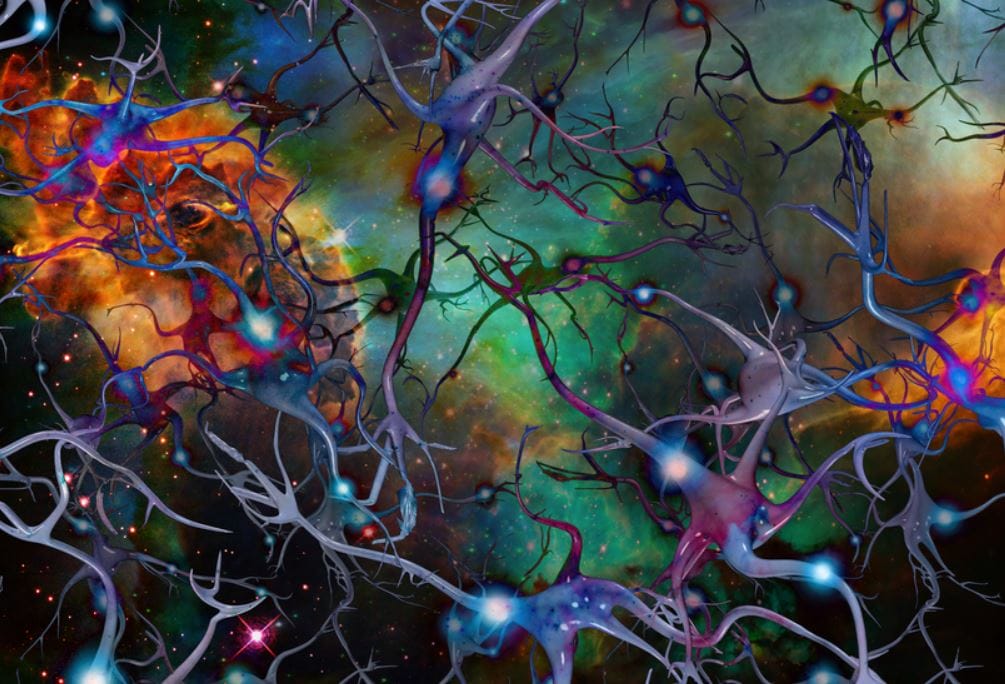Best Nootropics for ADHD
October 16, 2023
According to the United States’ Center for Disease Control (CDC), nearly six million children were diagnosed with attention deficit hyperactivity disorder (ADHD) from 2016 to 2019 alone. However, this chronic condition impacts more than just children. According to the National Institute of Mental Health, more than 8% of American adults (ages eighteen to forty-four) have a lifetime prevalence of ADHD (1, 2).
ADHD is one of the most common neurodevelopmental disorders (3), with the three most common symptoms including inattention, impulsivity, and hyperactivity. However, those struggling with ADHD symptoms may have more than just ADHD to worry about. At least one-quarter of people living with ADHD are also living with a diagnosable anxiety disorder (4).
When you’re living with both anxiety and ADHD symptoms, anti-anxiety nootropic stacks may provide the relief or alleviation of symptoms you’re looking for. While prescription medication is available to treat both ADHD and anxiety, these medications often come with side effects that leave users feeling aggressive, dependent on the medication, and even heart problems (5). This is where taking nootropics may help alleviate the symptoms of ADHD.
What Is a Nootropic?
Nootropics are essentially numerous natural, semi-synthetic, and synthetic molecules that are reported to improve cognitive functions. They’re often dubbed ‘smart drugs’ or ‘cognitive enhancers.’
They work by improving the brain’s supply of glucose and oxygen (the predominant fuel that supports brain function), have antihypoxic effects (prevents decrease of dopamine release, which supports positive mood), and can protect the brain from neurotoxicity (6).
Nootropics typically don’t show immediate effects after a single dose and most require an extended period of use before users see results (7). However, nootropics aren’t limited to supporting individuals struggling with ADHD or anxiety symptoms. At CosmicNootropic, you can find the best nootropics for insomnia, best nootropics for motivation, and more.
Nootropics That May Help With ADHD
Cognitive enhancers and nootropics may help individuals boost their cognitive performance, concentration, memory, and other ADHD cognition challenges, such as brain fog. Over-the-counter (OTC) nootropics are widely available and can be found at the majority of pharmacies.
There are three types of ADHD: inattentive ADHD, hyperactive/impulsive ADHD, and combined ADHD. Because individuals with ADHD are unique and their symptoms can manifest in a variety of ways, we always recommend consulting with a healthcare professional before taking any nootropics or supplements.
While many nootropics may be able to offer you the benefits you’re looking for, here are our top choices for ADHD-specific symptoms:
L-Theanine
A study published in 2019 reported that L-theanine paired with caffeine may improve sustained attention, impulsivity, and cognition for individuals diagnosed with ADHD (8). While research into L-theanine is still new and incomplete, there are numerous small studies (9) in which users reported improvements in:
- Concentration
- Cognitive performance
- Attention span
- Focus
Your body naturally produces L-theanine, but taking this nootropic as a supplement may be able to help with ADHD symptoms. L-theanine is present in most teas, but it is also available in an OTC supplement.
L-Tyrosine
L-tyrosine is an amino acid that is important in the production of the body’s proteins, hormones, and neurotransmitters–particularly the ones linked to ADHD: dopamine, norepinephrine, and epinephrine. These can impact your brain chemistry regarding mood and energy levels.
While L-tyrosine is thought to help alleviate some of the symptoms of ADHD (primarily, inattention or memory problems), the existing studies on L-tyrosine are more than eight years old (10). However, a study in 2015 (12) found that adults taking L-tyrosine as a supplement noticed an improvement in cognitive flexibility and adjust to changing circumstances, which is a common symptom for adults struggling with ADHD and other neurodivergencies. Because studies surrounding L-tyrosine and cognitive functioning garner varied results, users may find benefits from this nootropic vary from user to user.
Mebicar
Mebicar is also known as ‘temgicoluril’ or ‘tetramethlyglycoluril,’ and is sometimes sold under the name ‘Adaptol.’ While it is marketed as a daytime tranquilizer, this may help individuals struggling with ADHD symptoms. Mebicar has shown in studies that it may prevent and reduce anxiety symptoms, tension, and has other nootropic effects such as improved mental performance and focus (12).
Bear in mind the three different types of ADHD and how different nootropics and supplements may impact you individually. As always, consult with a healthcare professional regarding usage, dosage, and if the nootropics on this list are suitable for your unique situation.
Legal Disclaimer
This product has not been approved by the US FDA. All statements on this page are for informational purposes only and have not been evaluated by the US FDA.
This product is not intended to diagnose, treat, cure, or prevent any disease. See more
Sources:
- https://www.cdc.gov/ncbddd/adhd/data.html
- https://www.nimh.nih.gov/health/statistics/attention-deficit-hyperactivity-disorder-adhd
- https://www.mayoclinic.org/diseases-conditions/adhd/symptoms-causes/syc-20350889?utm_source=Google&utm_medium=abstract&utm_content=Attention-deficit-hyperactivity-disorder&utm_campaign=Knowledge-panel
- https://www.ncbi.nlm.nih.gov/pmc/articles/PMC8427811/
- https://www.drugwatch.com/adderall/side-effects/
- https://www.ncbi.nlm.nih.gov/pmc/articles/PMC9415189/#:~:text=Nootropics%2C%20also%20known%20as%20%E2%80%9Csmart,where%20these%20functions%20are%20impaired
- https://pubmed.ncbi.nlm.nih.gov/9890490/
- https://pubmed.ncbi.nlm.nih.gov/9890490/
- https://www.nature.com/articles/s41598-020-70037-7
- https://psychcentral.com/adhd/does-l-tyrosine-help-adhd-symptoms#can-it-improve-adhd-symptoms
- https://pubmed.ncbi.nlm.nih.gov/25598314/
- https://pubmed.ncbi.nlm.nih.gov/19738569/



